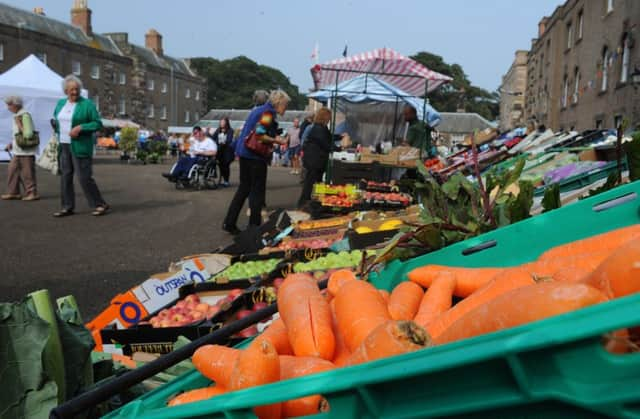Children benefit from knowing about diet


Food education has the potential to tackle many of the health and socio-economic issues concerning children and young people such as obesity, community cohesion and youth unemployment.
As 2015 is the Year of Scotland Food and Drink – a celebration of the Scottish Larder – it’s an ideal year to approach businesses to ask for their support in addressing these issues.
Advertisement
Hide AdAdvertisement
Hide AdFor the past two years the responsible business charity Scottish Business in the Community (SBC), in partnership with the Scottish Government (SG) and Education Scotland (ES), has been playing a key role in the delivery of the Food for Thought: Education Fund Programme.
Food for Thought aims to support practitioners from all curriculum areas to develop and/or build on existing practice in food education.
In my role as project manager, I work with nurseries through to secondary schools to develop and improve food education with the support of local business. This enables teachers to carry out practical cookery sessions with pupils and to deliver projects to encourage good eating habits.
I work with each participating school to determine its priorities on food education, ranging from food journey to employability. I then approach local businesses to support the schools.
So far, I have been involved with over 200 businesses, ranging from a small butcher’s shop to large retailers who have become involved to help make a difference in their local communities.
Despite being one of the wealthiest nations in the world, Scotland has well-documented problems with child poverty and obesity.
According to Child Poverty Action Group, about 20 per cent of children in Scotland live in poverty with some areas reaching up to 30 per cent.
The Food for Thought programme has supported schools by running events and projects, such as getting schools to grow their own vegetables, healthy eating sessions and health week events – for example at Menzieshill nursery in Dundee where our member company Asda came to visit with a variety of exotic fruits for the children to try.
Advertisement
Hide AdAdvertisement
Hide AdIn Edinburgh, I convinced a group of solicitors to change out of their suits and get their hands dirty by cultivating an unused patch of land as a vegetable garden for Castleview Primary School.
One particular highlight for Prestwick Academy was when Gary Edwards, the Scotland Commonwealth team’s judo coach, came to talk to the pupils about the link between good nutrition and sporting performance. It’s hard to argue against someone who has won 120 medals.
Food for Thought has the flexibility to use food to help bring communities together through healthy eating. This was particularly true when a nursery practitioner from Bellshill expressed her concerns about a lack of healthy eating by children and asked me to arrange a healthy eating session for the parents’ lunch club.
The head chef from the nearby Hilton Hotel delivered a cookery demonstration to the parents using a recipe from the “Eat Better, Feel Better” campaign with Asda, generously donating individual packs of ingredients for parents to try the recipe at home. According to the Scottish Government, youth unemployment is currently sitting at around 15.9 per cent. Scotland’s thriving food and drink industry has the potential to help by raising awareness of the opportunities for young people within the sector.
To help older pupils, Food for Thought has run several food and drink careers fairs with workshops on helping develop pupils’ business acumen and other skills such as marketing, presentation and customer service.
The feedback for the work of Food for Thought has been overwhelmingly positive.
The pupils involved have not only improved their understanding of food but also the importance of health and wellbeing. They have also learned valuable life skills such as cooking, teamwork, co-operation, and presentation skills. There are a multitude of benefits to businesses and increasing engagement with communities ultimately results in raising profiles and reputations.
• Vivian Maeda is Food for Thought programme co-ordinator at Scottish Business in the Community www.sbcscot.com. If you wish to find out more about Food for Thought and support our younger generation to become a good food nation please contact Vivian Maeda at Scottish Business in the Community.
SEE ALSO